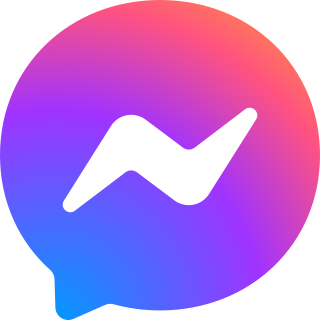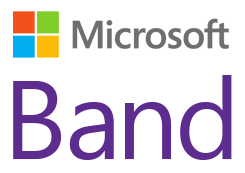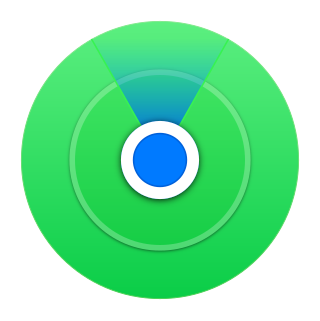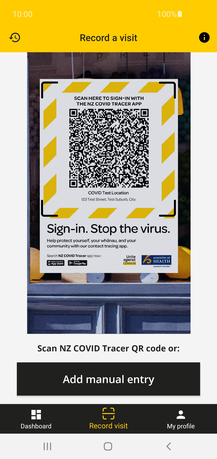Related Research Articles
Bluetooth is a short-range wireless technology standard that is used for exchanging data between fixed and mobile devices over short distances and building personal area networks (PANs). In the most widely used mode, transmission power is limited to 2.5 milliwatts, giving it a very short range of up to 10 metres (33 ft). It employs UHF radio waves in the ISM bands, from 2.402 GHz to 2.48 GHz. It is mainly used as an alternative to wire connections, to exchange files between nearby portable devices and connect cell phones and music players with wireless headphones.

ThinkGeek was an American retailer that catered to computer enthusiasts and "geek culture". Described as a "Sharper Image for sysadmins", their merchandise has been likened to "toys for adults, novelties designed to appeal to both your inner child and your inner grad student." These include clothing, electronic and scientific gadgets, unusual computer peripherals, office toys, pet toys, child toys, and caffeinated drinks and candy. ThinkGeek was founded in 1999 and was based in Fairfax, Virginia. The brand is currently owned by Geeknet, a subsidiary of GameStop.
Beacon formed part of Facebook's advertisement system that sent data from external websites to Facebook, for the purpose of allowing targeted advertisements and allowing users to share their activities with their friends. Beacon reported to Facebook on Facebook's members' activities on third-party sites that also participated with Beacon. These activities were published in users' News Feed. This occurred even when users were not connected to Facebook, and happened without the knowledge of the Facebook user. The service was controversial and became the target of a class-action lawsuit, resulting in it shutting down in September 2009. One of the main concerns was that Beacon did not give the user the option to block the information from being sent to Facebook. Beacon was launched on November 6, 2007, with 44 partner websites. Mark Zuckerberg, CEO of Facebook, characterized Beacon on the Facebook Blog in November 2011 as a "mistake." Although Beacon was unsuccessful, it did pave the way for Facebook Connect, which has become widely popular.
Bluetooth Low Energy is a wireless personal area network technology designed and marketed by the Bluetooth Special Interest Group aimed at novel applications in the healthcare, fitness, beacons, security, and home entertainment industries. It is independent of classic Bluetooth and has no compatibility, but Bluetooth Basic Rate/Enhanced Data Rate (BR/EDR) and LE can coexist. The original specification was developed by Nokia in 2006 under the name Wibree, which was integrated into Bluetooth 4.0 in December 2009 as Bluetooth Low Energy.

Instagram, LLC is a photo and video sharing social networking service owned by American company Meta Platforms. The app allows users to upload media that can be edited with filters, be organized by hashtags, and be associated with a location — via geographical tagging. Posts can be shared publicly or with preapproved followers. Users can browse other users' content by tags and locations, view trending content, like photos, and follow other users to add their content to a personal feed.

WhatsApp is a freeware, cross-platform, centralized instant messaging (IM) and voice-over-IP (VoIP) service owned by United States tech conglomerate Meta Platforms. It allows users to send text, voice messages and video messages, make voice and video calls, and share images, documents, user locations, and other content. WhatsApp's client application runs on mobile devices, and can be accessed from computers. The service requires a cellular mobile telephone number to sign up. In January 2018, WhatsApp released a standalone business app called WhatsApp Business which can communicate with the standard WhatsApp client.

Messenger is an American proprietary instant messaging app and platform developed by Meta Platforms. Originally developed as Facebook Chat in 2008, the company revamped its messaging service in 2010, released standalone iOS and Android apps in 2011, and released standalone Facebook Portal hardware for Messenger calling in 2018. In April 2015, Facebook launched a dedicated website interface, Messenger.com, and separated the messaging functionality from the main Facebook app, allowing users to use the web interface or download one of the standalone apps. In April 2020, Facebook released a Messenger desktop app for Windows and macOS.

Apple Wallet is a digital wallet developed by Apple Inc. and included with iOS and watchOS that allows users to store Wallet passes such as coupons, boarding passes, student ID cards, government ID cards, business credentials, resort passes, car keys, home keys, event tickets, public transportation passes, store cards, and – starting with iOS 8.1 – credit cards, and debit cards for use via Apple Pay.

Tile is an American consumer electronics company which produces tracking devices that users can attach to their belongings such as keys and backpacks. A companion mobile app for Android and iOS allows users to track the devices using Bluetooth 4.0 in order to locate lost items or to view their last detected location. The first devices were delivered in 2013. In September 2015, Tile launched a newer line of hardware that includes functionality to assist users in locating smartphones, as well as other feature upgrades. In August 2017, two new versions of the Tile were launched, the Tile Sport and Tile Style. As of 2019, Tile's hardware offerings consist of the Pro, Mate, Slim, and Sticker.
iBeacon is a protocol developed by Apple and introduced at the Apple Worldwide Developers Conference in 2013. Various vendors have since made iBeacon-compatible hardware transmitters – typically called beacons – a class of Bluetooth Low Energy (BLE) devices that broadcast their identifier to nearby portable electronic devices. The technology enables smartphones, tablets and other devices to perform actions when in proximity to an iBeacon.
Nearables are a type of smart object. They are everyday items that have small, wireless computing devices attached to them. These devices can be equipped with a variety of sensors and work as transmitters to broadcast digital data through a variety of methods, but they usually use the Bluetooth Smart protocol. Due to this, these objects are able to provide mobile devices in range with information about their location, state and immediate surroundings. The word 'nearables' is a reference to wearable technology – electronic devices worn as part of clothing or jewellery.

Microsoft Band is a discontinued smart band with smartwatch and activity tracker/fitness tracker features, created and developed by Microsoft. It was announced on October 29, 2014. The Microsoft Band incorporates fitness tracking and health-oriented capabilities and integrated with Windows Phone, iOS, and Android smartphones through a Bluetooth connection. On October 3, 2016, Microsoft stopped sales and development of the line of devices. On May 31, 2019, the Band's companion app was decommissioned, and Microsoft offered a refund for customers who were lifelong active platform users.
The like button on the social networking website Facebook was first enabled on February 9, 2009. The like button enables users to easily interact with status updates, comments, photos and videos, links shared by friends, and advertisements. Once clicked by a user, the designated content appears in the News Feeds of that user's friends, and the button also displays the number of other users who have liked the content, including a full or partial list of those users. The like button was extended to comments in June 2010. After extensive testing and years of questions from the public about whether it had an intention to incorporate a "Dislike" button, Facebook officially rolled out "Reactions" to users worldwide on February 24, 2016, letting users long-press on the like button for an option to use one of five pre-defined emotions, including "Love", "Haha", "Wow", "Sad", or "Angry". Reactions were also extended to comments in May 2017, and had a major graphical overhaul in April 2019.
Eddystone was a Bluetooth Low Energy beacon profile released by Google in July 2015. In December 2018 Google stopped delivering both Eddystone and Physical Web beacon notifications. The Apache 2.0-licensed, cross-platform, and versioned profile contained several frame types, including Eddystone-UID, Eddystone-URL, and Eddystone-TLM. Eddystone-URL was used by the Physical Web project, whereas Eddystone-UID was typically used by native apps on a user's device, including Google's first party apps such as Google Maps.

tvOS is an operating system developed by Apple Inc. for the Apple TV, a digital media player. In the first-generation Apple TV, Apple TV Software was based on Mac OS X. Starting with the second-generation, it is based on the iOS operating system and has many similar frameworks, technologies, and concepts.
Bluetooth beacons are hardware transmitters — a class of Bluetooth Low Energy (LE) devices that broadcast their identifier to nearby portable electronic devices. The technology enables smartphones, tablets and other devices to perform actions when in close proximity to a beacon.
Beacons are small devices that enable relatively accurate location within a narrow range. Beacons periodically transmit small amounts of data within a range of approximately 70 meters, and are often used for indoor location technology. Compared to devices based on Global Positioning System (GPS), beacons provide more accurate location information and can be used for indoor location. Various types of beacons exist, which can be classified based on their type of Beacon protocol, power source and location technology.

Find My is an asset tracking service made by Apple Inc. that enables users to track the location of iOS, iPadOS, macOS, watchOS devices, AirPods, AirTags and a number of supported third-party accessories through a connected iCloud account. Users can also share their GPS locations to others with Apple devices and view the location of others who choose to share their location. Find My was released alongside iOS 13 on September 19, 2019, merging the functions of the former Find My iPhone into a single app. On watchOS, Find My is separated into three different applications: Find Devices, Find People and Find Items.

NZ COVID Tracer is a mobile software application that enables a person to record places they have visited, in order to facilitate tracing who may have been in contact with a person infected with the COVID-19 virus. The app allows users to scan official QR codes at the premises of businesses and other organisations they visit, to create a digital diary. It was launched by New Zealand's Ministry of Health on 20 May 2020, during the ongoing COVID-19 pandemic. It can be downloaded from the App Store and Google Play.
www
References
- 1 2 Boden, Rian (2 February 2015). "Facebook to test Bluetooth beacons in New York". NFC World. Retrieved 30 July 2015.
- ↑ Dempsey, Steve (26 July 2015). "Beacons - a new marketing ploy or big brother with bells and whistles?". Independent.ie. Retrieved 30 July 2015.